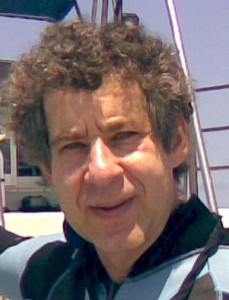
Intelligence for the 99 Percent
David Isenberg
Huffington Post, 27 June 2012
As someone who spends a lot of time thinking about the three Ds (Death, Doom, and Destruction) of international geopolitics I often ponder the way policymakers get their information. Admittedly, there are all sorts of ways to get information but for people in government it means only one thing, the intelligence community..
And when you reflect on the IC all sorts of other questions comes to mind; are taxpayers getting good value for the money, is the IC working effectively, can it be improved, how can it, and, perhaps most important, is there a better way?
That last point brings to mind a new book, THE OPEN SOURCE EVERYTHING MANIFESTO – Transparency, Truth, & Trust” by Robert David Steele
He is a former CIA clandestine services case officer, as well as a Marine Corps infantry and intelligence officer for twenty years. He has promoted the use of open source intelligence (OSINT) for decades. He also runs the most informative Public Intelligence blog.
He has long argued that U.S. intelligence reform is needed and that the private sector can fulfill U.S. OSINT needs more capably and less expensively than the government can.
In other words, if a formal intelligence system is for the one percent, OSINT is for the ninety nine percent.
If you have ever thought that the U.S. intelligence system is structurally dysfunctional you will not be disappointed by Steele. For example:
As a professional intelligence officer who held Top Secret and Sensitive Compartmented Information (TS/SCI) clearances for thirty years (1976-2006), I was originally focused on national security secrets and employed by the U.S. government. With time and experience I slowly realized that the vast troves of “open” sources of information–meaning what is accessible to anyone willing to look or listen–are more reliable and more useful than “secret” sources that have built-in obstacles to validation and accountability.”
The value of OSINT has implications that go far beyond the intelligence community, from war and peace, Occupy Wall Street, and environment issues. It is the single commonality that should apply to every issue you can think of. But since intelligence was Steele's career field he is in a position to tell us if the status quo benefits us. Quite clearly, he thinks it does not.
Here's the bottom line: The secret world of intelligence–at least in the United States of America–represents everything that is wrong with the government, the industrial era, our financial-economic system, and our ethics. It was in 1988 that I first realized, beyond a shadow of a doubt, that the U.S. government is “the emperor wearing no clothes,” ignorant of most of what goes on in the world, substituting ideology for intelligence, and expensive, largely useless contracting and technology for thinking. We lack intelligence as well as integrity in that we are spending $80 billion a year on secret collection sources and methods, processing virtually none of that, and producing, in the words of General Tony Zinni, USMC (Retired), “at best” four percent of what the President or a major commander needs to know, and nothing for everyone else.
While much of what is in Steele's books draws on his past writings it does not lessen its value. Personally, I think it should be self-evident in the Internet age, where there is a global movement to share information and knowledge as widely as possible, that OSINT should be the default mechanism by which both people and institutions acquire their information.
It would also do much to strengthen the democratic process. As Steele writes, “The establishment of a transparent and open government, open society, and open economy that is truly of, by, and for We the People requires the self-actualization of We the People.”
One might also note that when it comes to the use of intelligence agencies that so-called conservatives, who are always the first to bemoan, big slothful, unaccountable, big spending government agencies, always support giving more money to all the different agencies which make up the U.S. intelligence community and who hide behind the mantra of national security when it comes to oversight and accountability questions.
The bottom line is that if you satisfied with a status quo which operates on the basis of “a top-heavy, opaque, centralized, and rigidified system that misses the big picture and rewards a few at the expense of the many,” then don't read Steele's book
But if you want:
a “Smart Nation” in which a mature decision-support function educates and enables every citizen to be a collector, producer, and consumer of legal, ethical, open-source intelligence, and also to be a vibrant member of the authentic intelligence community of the whole–humanity connected as one, thinking as one, acting as one. Every citizen must be actively aware of, participating in, and overseeing research, and that research should be focused on creating prosperity and peace, not war and poverty or suicidal seeds.
then read this book.
Follow David Isenberg on Twitter: www.twitter.com/vanidan



